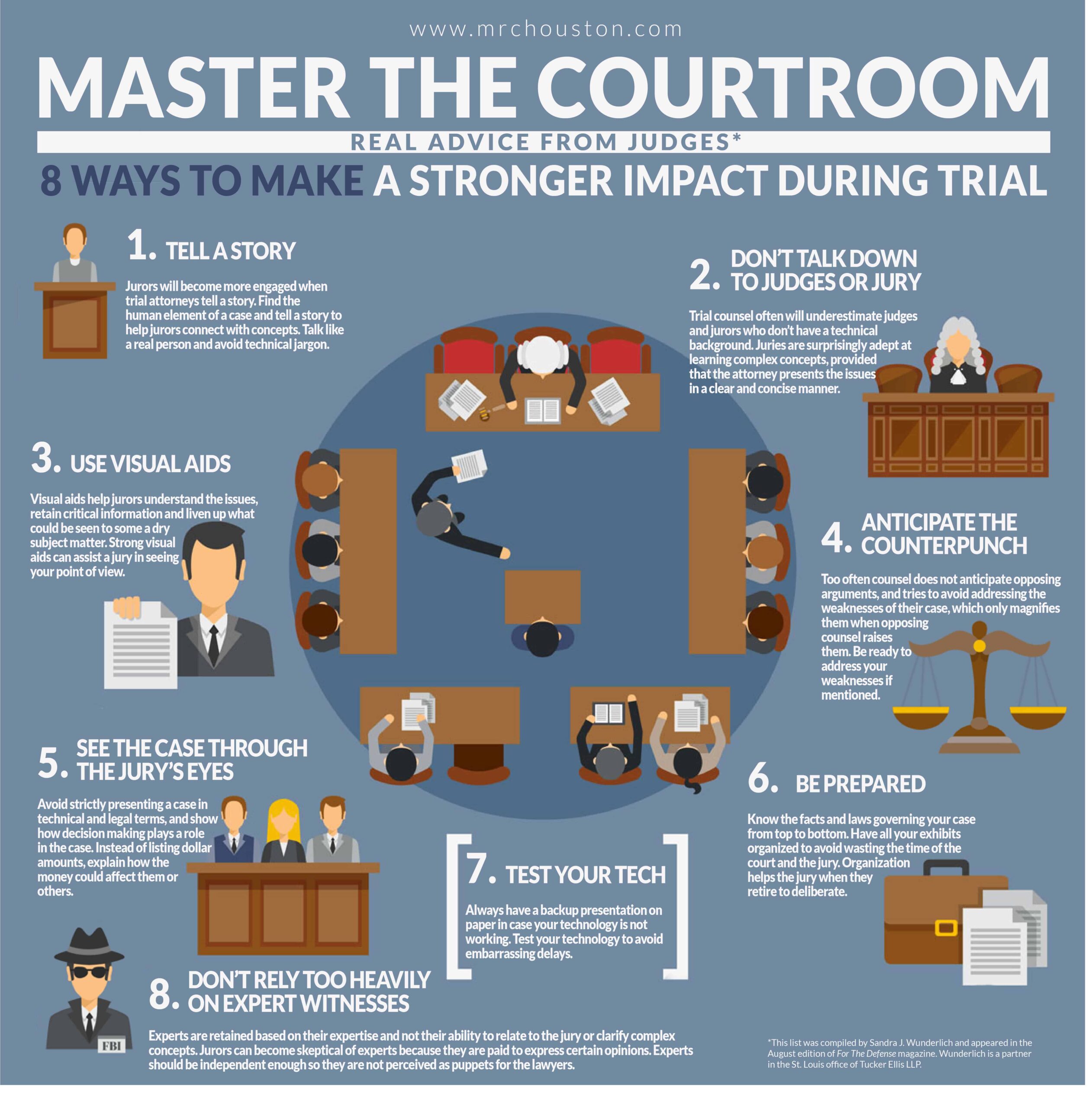A recent article in For The Defense magazine shares advice by various judges throughout the country on ways to improve advocacy skills. Author of the article Sandra J. Wunderlich, a partner in the St. Louis office of Tucker Ellis LLP, doesn’t reveal the names of the judges that assisted her, but the list of tips holds weight and offers credible insight.

- TELL A STORY
Jurors will become more engaged when trial attorneys tell a story. Find the human element of a case and tell a story to help jurors connect with concepts. Talk like a real person and avoid technical jargon. - DON’T TALK DOWN TO JUDGES OR JURY
Trial counsel often will underestimate judges and jurors who don’t have a technical background. Juries are surprisingly adept at learning complex concepts, provided that the attorney presents the issues in a clear and concise manner. - USE VISUAL AIDS
Visual aids help jurors understand the issues, retain critical information and liven up what could be seen to some a dry subject matter. Strong visual aids can assist a jury in seeing your point of view. - ANTICIPATE THE COUNTERPUNCH
Too often counsel does not anticipate opposing arguments, and tries to avoid addressing the weaknesses of their case, which only magnifies them when opposing counsel raises them. Be ready to
address your weaknesses if mentioned. - SEE THE CASE THROUGH THE JURY’S EYES
Avoid strictly presenting a case in technical and legal terms, and show how decision making plays a role in the case. Instead of listing dollar amounts, explain how the money could affect them or others. - BE PREPARED
Know the facts and laws governing your case from top to bottom. Have all your exhibits organized to avoid wasting the time of the court and the jury. Organization helps the jury when they retire to deliberate. - TEST YOUR TECH
Always have a backup presentation on paper in case your technology is not working. Test your technology to avoid embarrassing delays. - DON’T RELY TOO HEAVILY ON EXPERT WITNESSES
Experts are retained based on their expertise and not their ability to relate to the jury or clarify complex concepts. Jurors can become skeptical of experts because they are paid to express certain opinions. Experts should be independent enough so they are not perceived as puppets for the lawyers.

